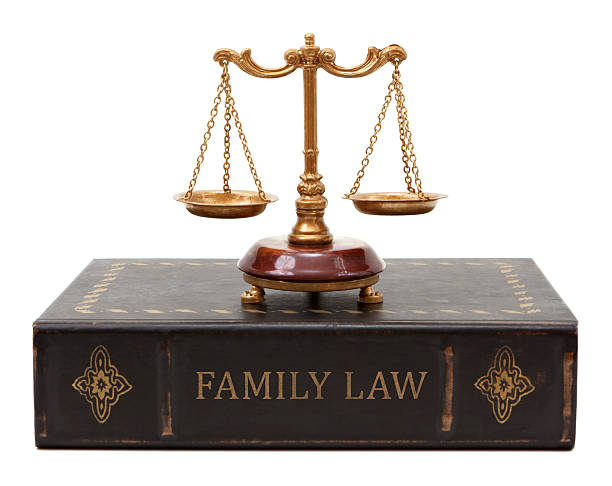This article will discuss the court’s role in relation to arbitration of disputes in the Family Law Act 1975. The court’s role in relation to the arbitration of disputes in family law matters is primarily supportive. The Family Law Act allows parties to resolve their disputes through arbitration as an alternative to court.
The court’s involvement usually occurs before and after arbitration. Before arbitration, the court may refer the parties to arbitration or assist them in selecting an arbitrator. The court can also make orders to facilitate arbitration, such as staying in court proceedings or granting interim orders.
After arbitration, the court’s role comes into play if the arbitration agreement is binding. Additionally, one of the parties may seek to enforce or challenge the arbitral award. The court can enforce the award as if it were a court order or set it aside under certain circumstances, such as:
- Misconduct; or
- Breach of procedural fairness
Read on to know more about provisions about the court’s role in relation to arbitration of disputes.
What Is Arbitration?
Arbitration is a dispute resolution process where parties agree to have an impartial third party, known as an arbitrator. The arbitrator then makes a binding decision on their legal issues. It is an alternative to resolving disputes through the court system.
The arbitrator is usually a qualified family law specialist who has expertise in resolving family law disputes. The parties involved voluntarily agree to submit their dispute to arbitration and abide by the arbitrator’s decision, which is called an arbitral award. Arbitration offers several potential advantages, including:
- Flexibility: Parties have more control over the process and can customise it to suit their specific needs.
- Privacy: Arbitration is a confidential process, which means that the details of the dispute are not made public.
- Expertise: The arbitrator is typically a specialist in family law matters, ensuring that the decision is made by someone with relevant knowledge and experience.
- Efficiency: Arbitration can often be faster and more streamlined than going through the court system.
However, it’s important to note that arbitration is not suitable for all family law matters. This is the case particularly those involving serious issues such as child abuse or family violence.
These cases are usually resolved with court procedures or mediation. Additionally, parties should carefully consider the costs and potential limitations of arbitration before opting for this method of dispute resolution.

Section 13E: Court May Refer Part VIII Proceedings or Part VIIIAB Proceedings to Arbitration
According to Section 13E about the court’s role in relation to arbitration of disputes, a court may refer to the following proceedings for arbitration:
- Part VIII proceedings (property, spousal maintenance, and financial matters)
- Part VIIIAB proceedings (relating to financial agreements other than Part VIIIAB proceedings)
When the court orders arbitration for these proceedings it can adjourn the proceedings if needed and make additional orders for effective arbitration.
Section 13F: Court May Make Orders to Facilitate Arbitration of Certain Disputes
The Section 13F about the court’s role in relation to arbitration of disputes states that a court:
- With jurisdiction under the Family Law Act has the authority to receive an application from a party involved in a property or financial arbitration
- Can issue orders it deems suitable to ensure the arbitration process is conducted effectively. These orders are intended to assist and facilitate the smooth progress of the arbitration proceedings.
Section 13G: Federal Circuit and Family Court of Australia (Division 2) May Determine Questions of Law Referred by Arbitrator
Section 13G about the court’s role in relation to arbitration of disputes states that:
1. An arbitrator handling a Section 13E arbitration or relevant property or financial arbitration has the authority to refer a legal question arising in the arbitration to either:
- The Federal Circuit and Family Court of Australia (Division 2); or
- A single judge of the Family Court of a State.
This referral can be made at any time before the arbitrator issues an award in the arbitration. The arbitrator can make this referral either:
- On their own initiative;
- Or upon the request of one or more parties involved in the arbitration
2. The arbitrator is not permitted to issue an award in the arbitration until the judge or the Federal Circuit and Family Court of Australia (Division 2) has either:
- Determined the legal question; or
- Sent the matter back to the arbitrator after finding that no legal question arises.
Section 13H: Awards Made in Arbitration May Be Registered in Court
Section 13H about the court’s role in relation to arbitration of disputes states that:
1. A party involved in a section 13E arbitration or relevant property or financial arbitration can register the award in either:
- The court that ordered the arbitration, in the case of section 13E arbitration; or
- a court with jurisdiction under the specified Act, in other cases.
2. Once registered, the award holds the same legal effect as a decree issued by that court.
Section 13J: Review of Registered Awards
Section 13J about the court’s role in relation to arbitration of disputes means the following:
1. A party involved in a registered award resulting from Section 13E arbitration or relevant property or financial arbitration can apply for a review of the award, specifically on questions of law. The application for review can be made to either:
- The Federal Circuit and Family Court of Australia (Division 2); or
- A single judge of the Family Court of a State.
Note: There may be specific Rules of Court that govern the timing and procedure for making an application for review of the award (refer to paragraph 123(1)(sf)).
2. During the review process under this Section, the judge or the Federal Circuit and Family Court of Australia (Division 2) have the authority to:
- Determine all questions of law that arise in relation to the arbitration; and
- Issue appropriate decrees, which can include affirming, reversing, or modifying the award.

JB Solicitors’ Arbitration Services
We hope this article has helped you understand different sections on the court’s role in relation to arbitration of disputes. It is advisable to seek legal advice when dealing with matters that fall within these sections or any other legal matters.
Our family lawyers at JB Solicitors can provide people with expert legal advice about family law matters and if arbitration or mediation is necessary.
Contact us today if you have more questions about the court’s role in relation to arbitration of disputes.
